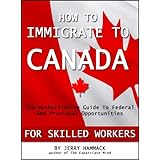The U.S. is one of two countries in the world who extract taxes from citizens who live and work abroad. No matter where you live, the U.S. wants its share. That's the cost of being a citizen. There is one tax law you may be able to take advantage of, however - the Foreign Earned Income Exclusion. Sounds good right?
The IRS tells us that, "United States Citizens and resident aliens who live and work abroad may be able to exclude all or part of their foreign salary or wages from their income when filing their U.S. federal tax return. They may also qualify to exclude compensation for their personal services or certain foreign housing costs."
And there's only one catch: you can almost never leave your foreign home in order to qualify.
To qualify for the foreign earned income exclusion, you must have a "tax home" in a foreign country and income received for working in that country. You also have to meet one of two tests: the bona fide residence test or the physical presence test.
Bona fide residence can only be taken advantage of if you are a "citizen" of the country you live and work in. Permanent resident? No such luck.
The physical presence test is the kicker if you are a permanent resident, and one for those living and working in Canada that makes this an exclusion that is almost impossible to qualify for.
The U.S. tax law states that you have to be present in the foreign country for 330 days in the tax year. Now given that a great majority of Canadian towns and cities are within 100 miles of the U.S. border, it makes it pretty difficult to avoid the country for 35 days a year. And if you travel home to see family, or take a holiday anywhere outside of Canada - forget it - your 35 days are going to pass quickly. You don't qualify any more. Travel for business? Tough. 330 days or no dice.
So thank you U.S. for picking our pockets. Thank you for joining the African nation of Eritrea (a nation who's government has shuttered all privately owned print media, arrested and held without trial all critics of the government and who none other than the U.S. State Department has declared a "Country of Particular Concern" (CPC) for its record of religious persecution (Wikipedia)). Really - good partner in tax policy!
The IRS tells us that, "United States Citizens and resident aliens who live and work abroad may be able to exclude all or part of their foreign salary or wages from their income when filing their U.S. federal tax return. They may also qualify to exclude compensation for their personal services or certain foreign housing costs."
And there's only one catch: you can almost never leave your foreign home in order to qualify.
To qualify for the foreign earned income exclusion, you must have a "tax home" in a foreign country and income received for working in that country. You also have to meet one of two tests: the bona fide residence test or the physical presence test.
Bona fide residence can only be taken advantage of if you are a "citizen" of the country you live and work in. Permanent resident? No such luck.
The physical presence test is the kicker if you are a permanent resident, and one for those living and working in Canada that makes this an exclusion that is almost impossible to qualify for.
The U.S. tax law states that you have to be present in the foreign country for 330 days in the tax year. Now given that a great majority of Canadian towns and cities are within 100 miles of the U.S. border, it makes it pretty difficult to avoid the country for 35 days a year. And if you travel home to see family, or take a holiday anywhere outside of Canada - forget it - your 35 days are going to pass quickly. You don't qualify any more. Travel for business? Tough. 330 days or no dice.
So thank you U.S. for picking our pockets. Thank you for joining the African nation of Eritrea (a nation who's government has shuttered all privately owned print media, arrested and held without trial all critics of the government and who none other than the U.S. State Department has declared a "Country of Particular Concern" (CPC) for its record of religious persecution (Wikipedia)). Really - good partner in tax policy!


